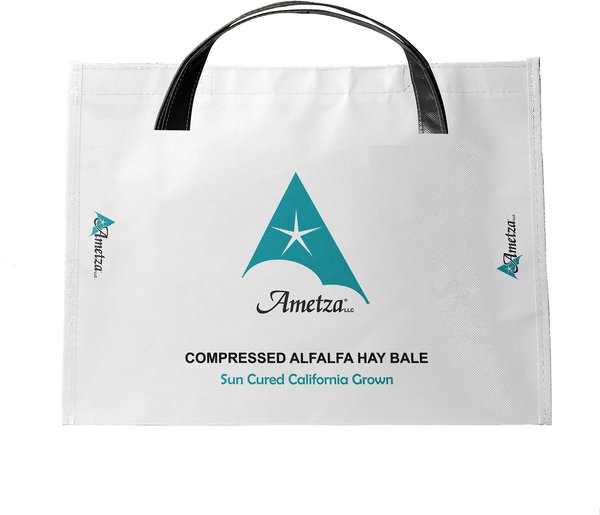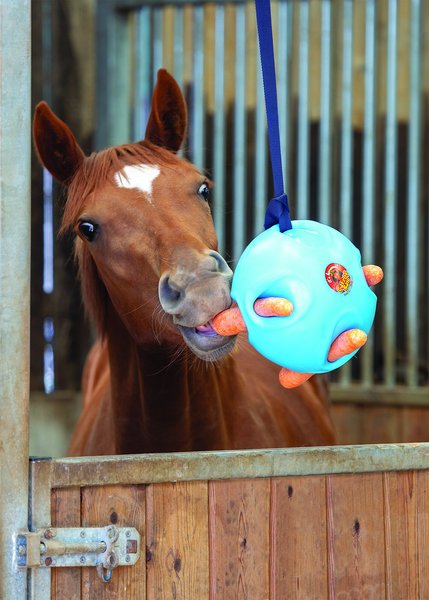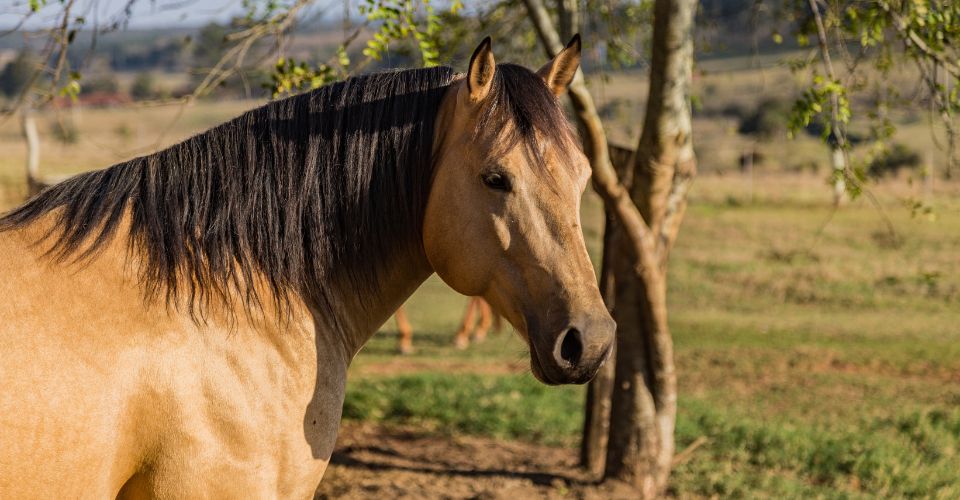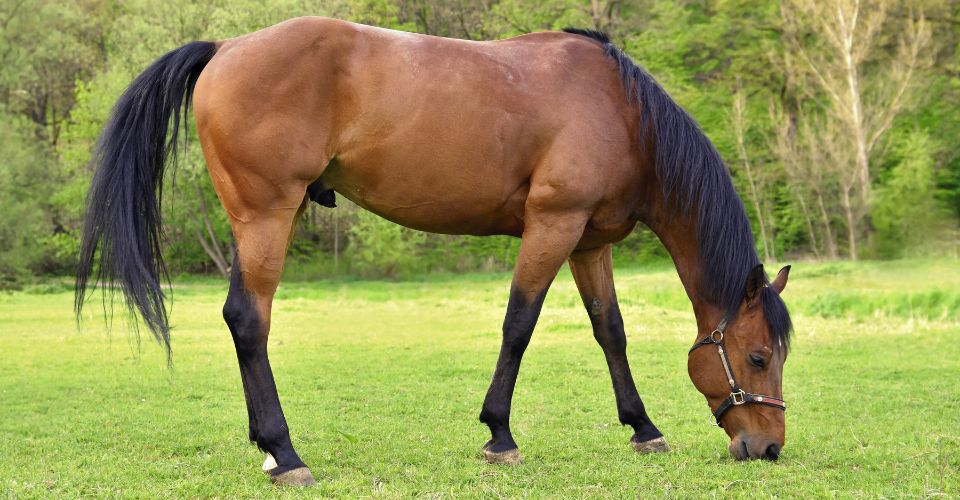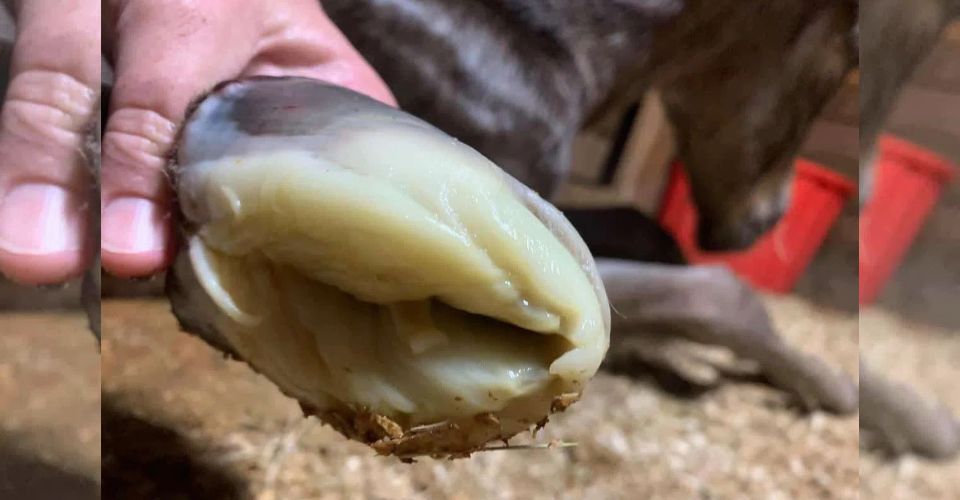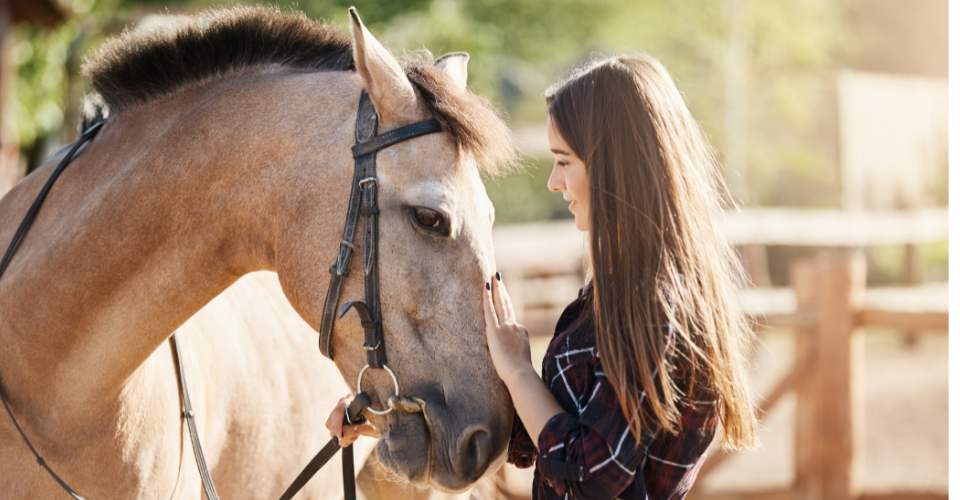We love our steeds. We provide them with all things best. We do not compromise on the horse’s diet or health.
To make sure that your steed has access to the good quality hay, you grow your pasture of hay for your steed, using the best fertilizer and after discussing with experts how much fertilizer per acre of hay is needed to get the best yield of hay for your equine friend. Your steed loves the hay produced on the farm, but one day it suddenly stops eating it. And you are found talking to a vet:
“My horse is not eating his hay. What can I do?”
Since horses are herbivores, and hay makes an integral part of the horse diet, it becomes really frustrating when your horse won’t eat hay. There are several reasons why a horse may stop eating; however, the good news is that solutions do exist as well.
If you are worried about your horse not eating his hay, continue reading; we are going to dig out the reasons behind your horse’s sudden disinterest in the hay.
Why Is My Horse Not Eating His Hay?
Broadly, there might be two types of reasons for your horse’s refusal to eat his hay: medical or otherwise.
Medical Reasons Why Your Horse Won’t Eat Hay
Dental Problems
Horses may develop certain pain-causing dental issues as they age. At worst, they might end up losing some of their teeth altogether. Experiencing difficulty chewing and swallowing, they refuse to feed on a diet rich in fiber such as hay.
Horses often develop sharp enamel points, which can cut into their cheeks. These injuries on the inside of the cheeks can lead to ulceration, which makes it difficult for horses to chew on hay.
Colic
Any kind of abdominal pain fits into the definition of colic. However, it is generally narrowed down to the problems related to the gastrointestinal tract. One of the subtlest signs of a colicky horse is loss of appetite, and your steed might push away any item you feed him, including hay.
Gastric Ulcers
In equine gastric ulcers, sores appear on the stomach linings. The main symptoms of equine gastric ulcers include diarrhea, weight loss, poor appetite, poor coat, and decreased performance. Though some kinds of hay, such as alfalfa, might be beneficial for horses suffering from ulcers, it can be a tough job to feed it to them.
|
|
Choke
Choke occurs when food is stuck in the esophagus. Suffering from a blockage in the alimentary canal, a horse might either cough out his food or not eat it in the first place. Other signs of choking horses include saliva or food particles escaping from the mouth or nostrils. Since choking can lead to serious problems and even death, you should contact a vet as soon as you observe the signs.
Diarrhea
Diarrhea is a digestive upset caused by several reasons, including infection and sudden diet change, and a horse suffering from it might not eat well. Usually, horses recover from diarrhea on their own, but if it persists for more than a day or two, you should consult your veterinarian.
Injury
Horses might stop eating after injury due to pain or discomfort. Fortunately, minor equine injuries heal themselves and are not a concern for horse owners. But if your horse is unlucky or the injury is severe, medication becomes necessary.
Common injuries in horses, especially the sporting ones, include bone bruises, sore muscles, inflamed joints, and suspensory ligament injuries.
Other Reasons
Boredom
A monotonous diet can alter the mood of horses from good to bad. Resultantly, they might refuse to eat whatever they have been eating for a long time. Hence, if you feed your horse only hay, chances are that he might get bored sooner or later. However, the first sign of boredom in horses is usually unwillingness to work or sluggish behavior.
You can also take the help of toys in warding off boredom on your horse. Shires Equestrian Carrot Ball is a toy that increases dexterity in steeds while offering potatoes, asparagus, tomatoes, strawberries, blueberries, etc. – offering healthy entertainment.
|
|
Separation Anxiety
Horses are herd animals; they thrive on the equine and human companionship. So, the loss of a human or an equine companion can cause separation anxiety in horses. Similarly, a sudden change in routine can temporarily break the will of horses to eat. In addition to these reasons, getting only a few moments outside their stable can also lead to decreased appetite.
Bullying
Yes, bullies exist in horses too! Pasture bullies – the horses that habitually intimidate other horses by biting or kicking – can obstruct the way of your pet to access hay or grass. Other than that, doing so can eventually stress your horse which can lead to the loss of appetite.
Weather
Hot weather can discourage horses from eating. This condition can be exacerbated by dehydration and the presence of flies. Therefore, it is crucial that you bathe your horse regularly during summer to keep them cool. You should also make sure that your horse has constant access to fresh water during hot summer days so that your horse does not suffer from dehydration.
Did You Know?
A horse’s body is 70% water, which is equivalent to 96 gallons for an average of 1,100 pounds horse.
Fussy Eating
Sometimes, older horses bid adieu to hay only because they do not “feel like eating it.” With aging, horses also develop dental issues or lose their teeth, which make it difficult for them to chew hay. Besides, with old age, most horses become fussy eaters in general.
What to Do If My Horse Is Not Eating His Hay?
Get Your Horse to Eat
Getting your horse to eat is not a tough job, provided you successfully identify what might be discouraging them. Once found, make sure you take all necessary actions. For instance, if the problem turns out to be a medical condition listed above, do not hesitate to contact a vet and get your horse the required treatment. Even if the problem does not seem to be medical, it is still advisable to seek professional help if your horse goes without eating hay for long.
Try Alternatives
Trying hay alternatives is a great idea, at least for the time being until your horse turns back to his original forage.
Some of them are:
Beet Pulp
Beet pulp is a fiber-rich material that is left after sugar is extracted from sugar beets. Besides being a great alternative to hay, beet pulps have the potential to impart horses with several nutritional benefits: they might or might not be with added molasses, they are soft and hence easy to digest, they have low relative content of crude protein, and they are high in calcium.
Here are two things you must be aware of before feeding your horse beet pulp: first, they must be stored in a dry place because they are soft and prone to mold; and second, despite the myths you might have heard, beet pulps are okay for horses if they are not soaked in water. However, doing so might make them more palatable and reduce the risk of choking.
Hay Cubes
Hay cubes are made by processing alfalfa or a mixture of it and timothy hay. Nevertheless, owners need to be a bit cautious before feeding their horses hay cubes because they might be higher in calcium and protein than the normal diet of an adult horse. Additionally, horses usually end up consuming hay cubes more than hay. Hence, it becomes necessary to monitor their intake.
It is further advisable to soak hay cubes for at least half an hour before feeding them to your horse to reduce the risk of choking.
Hay Pellets
Hay pellets can be a great replacement for traditional hay, especially for horses suffering from dental issues, as they can be added into a soup or gruel. Additionally, they have less dust which is good for horses suffering from respiratory diseases.
|
|
Soybean Hulls
Hulls contain a good amount of fiber. Providing up to 14% protein, they are easy to digest and accepted well by horses. Though they can replace hay, deficiency of long-stemmed fiber can induce wood chewing behavior in horses.
Complete Feed
If your horse refuses all the above alternatives, consider offering him complete feed. It is specially designed to fulfill all nutritional needs of horses. Like hay pellets, they can also be added to soup or gruel.
However, you must keep in mind that your hose might not like the taste of the feed. It is recommended to consult a vet before proceeding with such dietary changes.
Tip for Switching to Alternatives
Here are a few tips to make the switching to alternatives easy for your horse:
- Do not hasten the transition. Introduce the alternatives gradually and give your horse’s digestive system enough time to get accustomed to the new diet. On average, a complete and smooth transition would not take more than two to three weeks. Doing so can also reduce the risk of colic and stomach upset.
- Only change your horse’s diet if it is an absolute necessity. If he is suffering from illnesses that can be cured and he can eat hay again afterward, proceed with the treatment instead of changing the diet.
- Always discuss the transition with your vet. Since your horse might have any health complications you might not be aware of, it is a good idea to get an expert involved.
FAQs
Can Horses Live Without Hay?
Yes, horses can live without hay but not without fibers. If they are not eating hay, fibrous content must be offered from some other source.
Hay contains fiber, which is an important part of the equine diet. In addition, a low fiber diet has been documented to increase the risk of gastric problems, colic, and wood chewing behavior. Therefore, horses can adapt to a balanced diet that does not necessarily have hay or pasture in it, but it should feature a certain amount of fiber.
How Long Can a Horse Go Without Eating?
Horses can live for about two to three weeks without eating but in a cruel and fragile state as they begin developing various health conditions due to starvation. However, they cannot go for much longer without water. Horses not drinking water would only be able to survive for about three to six days.
Final Words
If your horse is not eating his hay, there might be some medical or other underlying reasons. However, in any case, it is advisable to get the help of a professional. Besides, you must strive to get your steed to eat by offering alternatives and getting the necessary medical attention. Though horses might live without hay, it is a great source of fiber that must not be compromised.
Having learned in detail why your horse is not eating his hay, find out what horses eat.


